Whether you have a homestead property and live rurally or not, these emergency preparedness tips will come in handy whenever and wherever you need them. Whether from a natural disaster, a short-term power outage, or something else entirely.
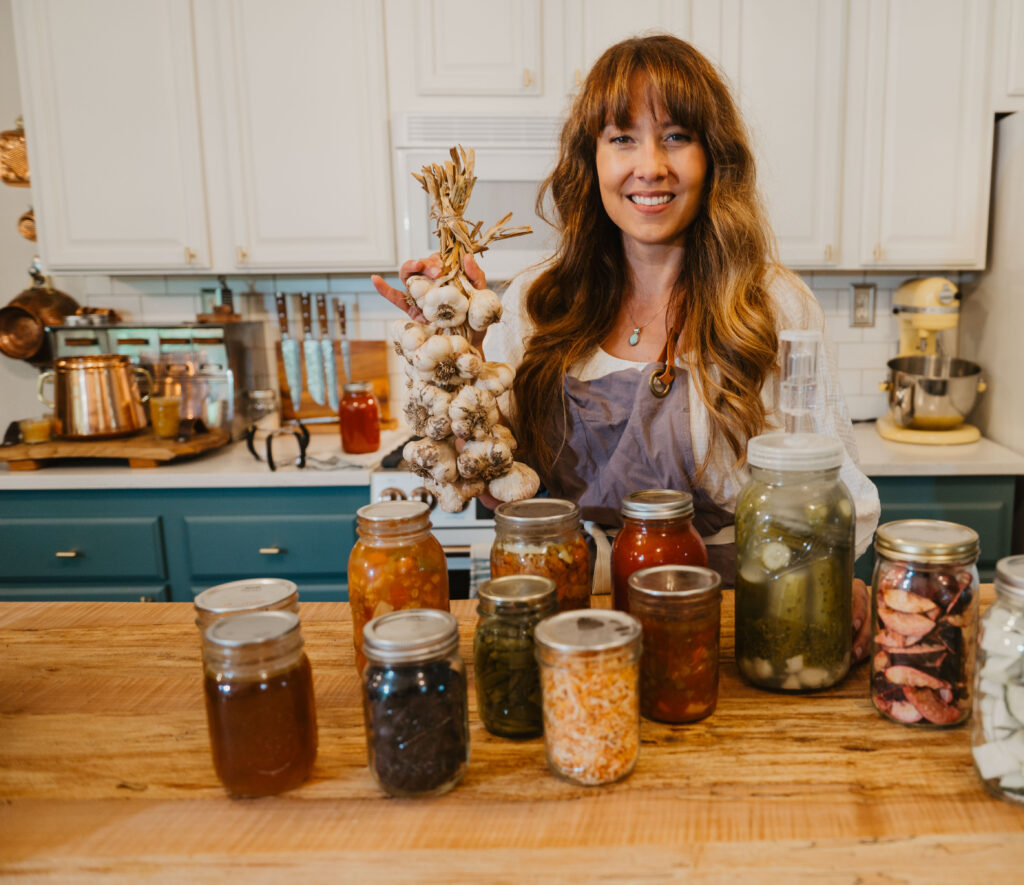
I’ve talked many times before about how important it is to be prepared. Most recently on how to put together a bug-out bag for emergencies and how to use a generator during a power outage (and why it’s imperative for us to have one). Keeping a well-stocked pantry and how this helps even during non-emergency times.
🍞 Struggling With Sourdough?
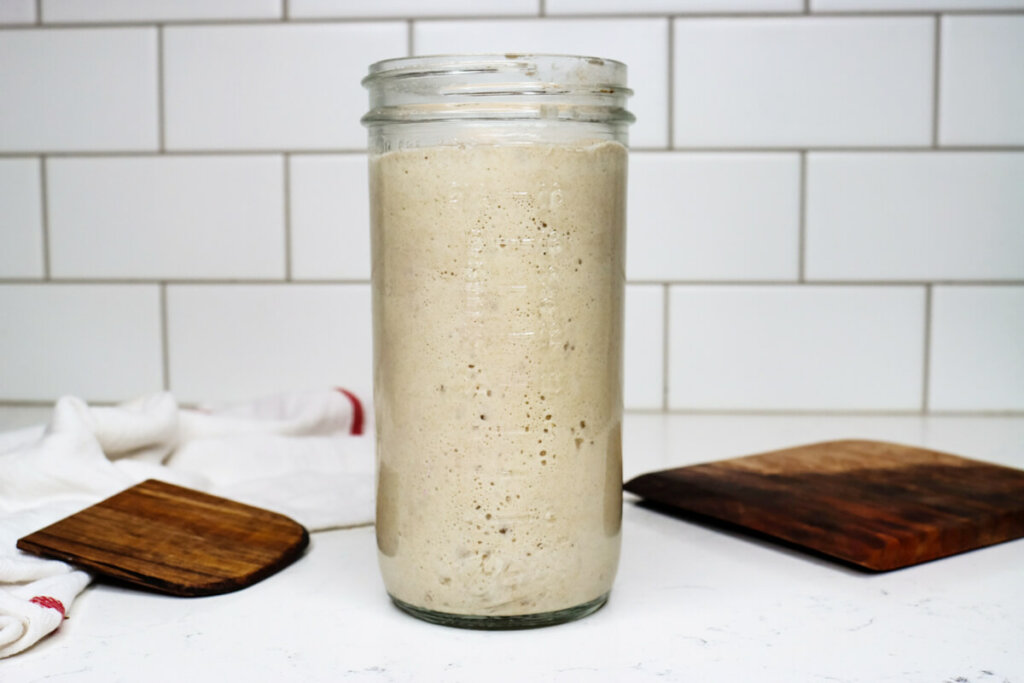
If your starter won’t take off, your loaves are dense and hard, or sourdough just flat-out overwhelms you…
👉 I’ll show you how to fix all of it.
Join my FREE workshop and learn how to make a bubbly, active starter—the right way, from Day One.
Natural Remedies Made Simple

Start your home apothecary with confidence—even if you’re brand new. Learn how to choose the right herbs for your body using the simple principles of herbal energetics.
Discover how warming, cooling, drying, and moistening herbs affect your body—so you can stop guessing and start making remedies that actually work.
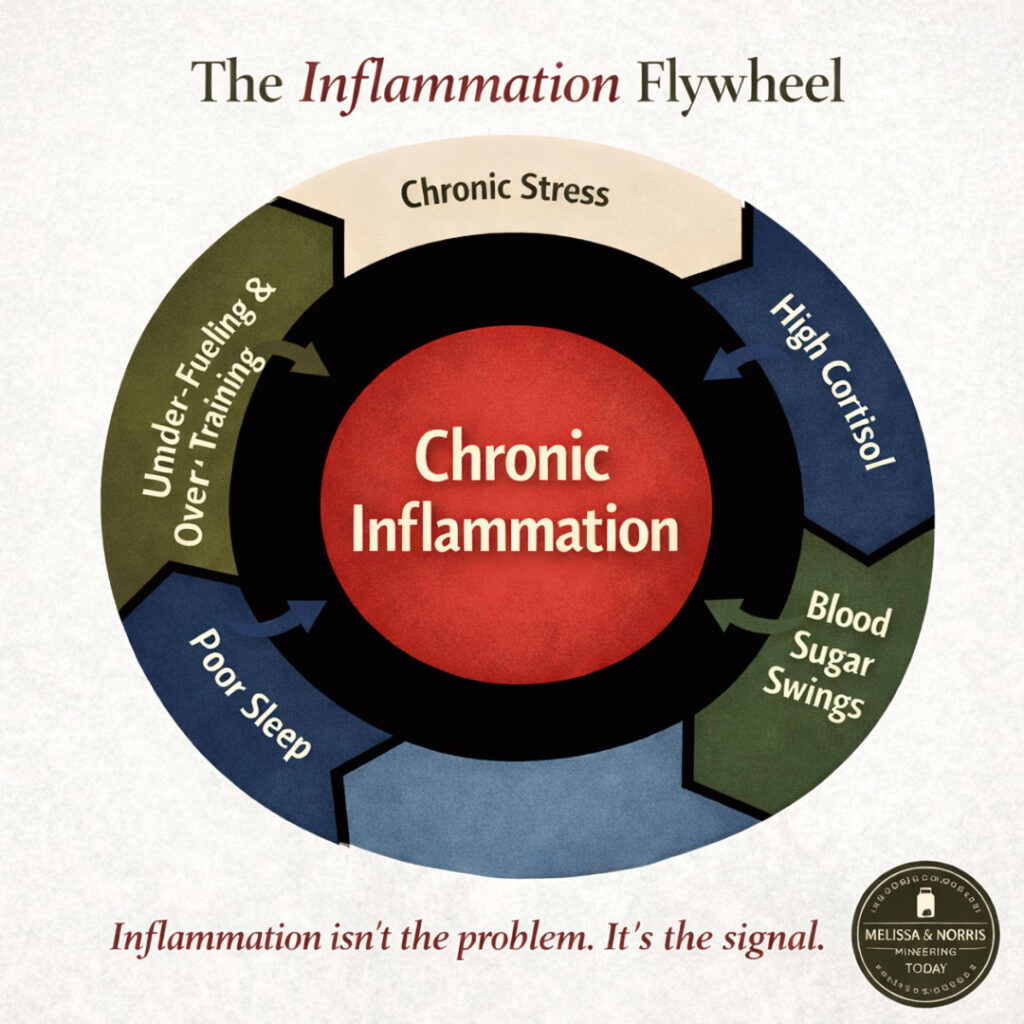
The Hidden Cycle Keeping You Inflamed
If you’ve been feeling puffy, tired, achy, or wired-but-tired, this two-page guide will help you understand what may be happening behind the scenes — even if you’re eating “healthy.”
Download the Inflammation Flywheel Guide and learn:
- Where to start so you don’t feel overwhelmed
- The 5 most common drivers that keep inflammation switched on
- Why blood sugar swings, stress, and poor sleep feed each other
I’ve even put together a 30-day emergency preparedness resource page as well as a free download of my preparedness checklist.
Because I’ve talked about preparedness so often, I’m sharing some of my past podcast episodes with you on the subject here. All in one place so they’re easy to find and listen to.
First up is Pioneering Today Podcast episode #361. In this episode, we talked about must-have homesteading skills with a unique look into the preparedness side of things.
You may have seen Malori on YouTube at Black Rifle Homestead or on the website, Black Rifle Homestead. She is a military wife, and her husband, Mark, is on active duty in the Army.
Next up are my podcasts on preparedness (parts 1 and 2). These are some of my very first podcast episodes, Pioneering Today Podcast Episodes #9 and #10!
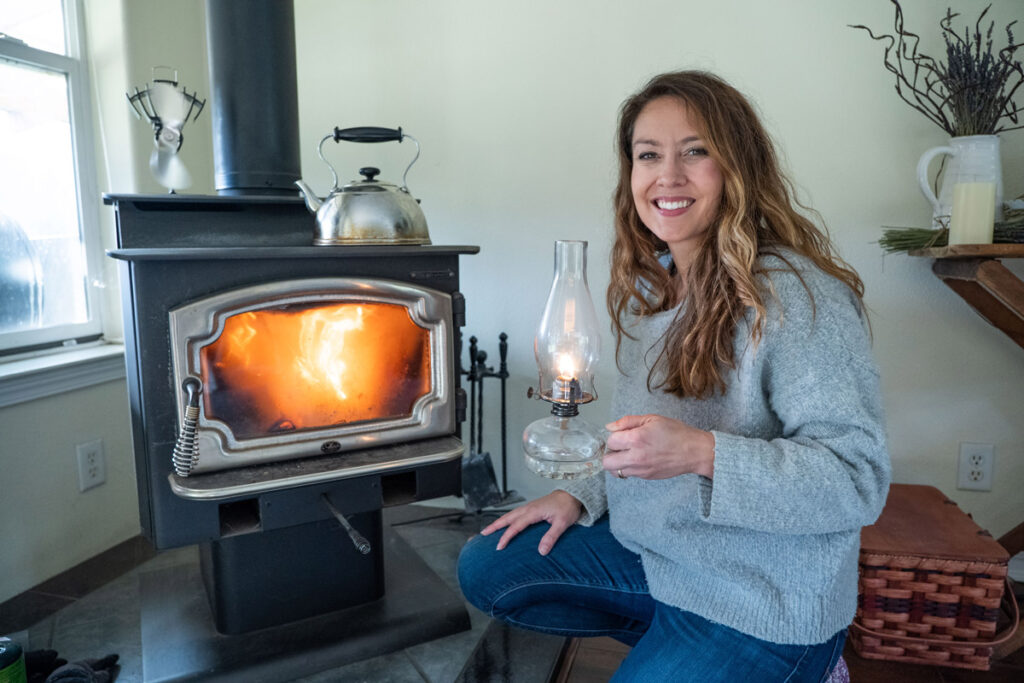
When the power goes out, and you don’t have batteries for your flashlights or candles to keep the house lit, you quickly order those things for the next time something like this happens.
When a refrigerator light goes out on a normal day, how about ordering a two-pack to replace the existing bulb and keep one on hand for the next time it goes out?
It’s best to prepare for these things ahead of time by thinking through the necessary items in your home or on your homestead that would be affected if the power went out or if a part stopped working.
When I say I don’t consider myself a prepper, I mean a doomsday-type mindset prepper where fear is a motivation. A homesteader is prepared but, in my experience, looks at it through a different lens. My hope is that you will look beyond labeling and find the value intended in this post and video.

Kitchen Items To Keep On Hand
- Cooking Methods – How will you cook your food without power? We have a wood-burning stove, so we can cook on our wood stove when needed. We can even bake simple bread like these bao buns if needed. If you don’t already have one, consider investing in a Dutch oven to bake anything you would in a regular oven. Then check out my tutorial on baking with a Dutch oven over an open fire. Being able to cook hot meals and sanitize water is important. Here are 11 ways to cook off-grid without power.
- Oven Parts– I learned the hard way to always keep a backup oven element and oven light on hand. In a home that relies on the oven nearly every day for home-cooked meals, having an oven that’s out of commission is bad news. (I use the oven light to proof or incubate my sourdough, yogurt and other ferments or cultures!)
- Canning Supplies – If you do much pressure canning, I recommend having spare parts and supplies for your canner. Items like the weighted gauge, the rubber gasket seal for the lid of your canner, the over-pressure release plug, and the wing-nuts (for the All-American pressure canners) are smart, otherwise you may risk losing your harvest if you have to wait for a replacement part. Also, canning supplies such as jars and lids (I love ForJars canning lids – use code “Modern10” for 10% off your order!).
- Food Storage – Having a well-stocked pantry is imperative for survival. Whether we’re talking about a short-term power outage or something more long-term. It’s important to know how to provide and preserve your own food and have stock of the food items you can’t produce yourself.
- Canned Goods – Home-canned foods are essential in a long-term power outage scenario. Canned food isn’t dependent upon electricity like the freezer. In the threat of long-term power loss, I know I could can up the food in the freezer as it thaws (having a backup to cook your food if you have an electric stove is important here). You may want to check out some of these resources: Canning 101 Water Bath vs. Pressure Canning and my canning recipe archives.
- Dried Goods – Rice, wheat berries, and dried beans are also good staples to have on hand. I have an electric flour grinder because wheat berries will store for years (vs pre-ground flour which has a shorter shelf-life). Check out my post on why you should grind your own flour & choosing a mill here. I also like this backup hand-operated grain mill from Victorio in case the power is out.
- Fats – Many folks have vegetables and meat covered, but what about access to a fat supply and salt? We know if we raise pigs we’re covered with lard, and I can render that down as we butcher them. I do like to order in bulk coconut oil and Redmond Real Salt (use coupon code “Pioneering” and get 15% off your order at checkout).
- Knife Sharpener – It’s always a great idea to keep your knives sharp, but how often do we put away a pocket knife and forget that it was really dull? Having a way to sharpen knives that doesn’t require electricity (or take up a lot of space) is a good idea.
- Herbs or Prescription Medications – We’ve done our best over the past 10 years to eliminate over the counter and prescription medications and to replace them with herbal remedies. Keeping a healthy supply of these items on hand is always a good idea, especially for those items you need to take on a daily basis. Will you have enough to last if you can’t get to the store, or those items become unavailable? For some, this might just be fever reducers, but if you’re on any prescription medications, you need to have a backup plan. My daughter has a blood clotting disorder, so this is something I have to prepare for. In the event of a long-term incident, many folks would return to more holistic remedies. A medicinal herb garden and know-how of using medicinal herbs would be beneficial. Tip: Honey can be used as an anti-biotic, cough suppressant, and sore throat treatment. Here’s how to make ginger honey for medicinal use.
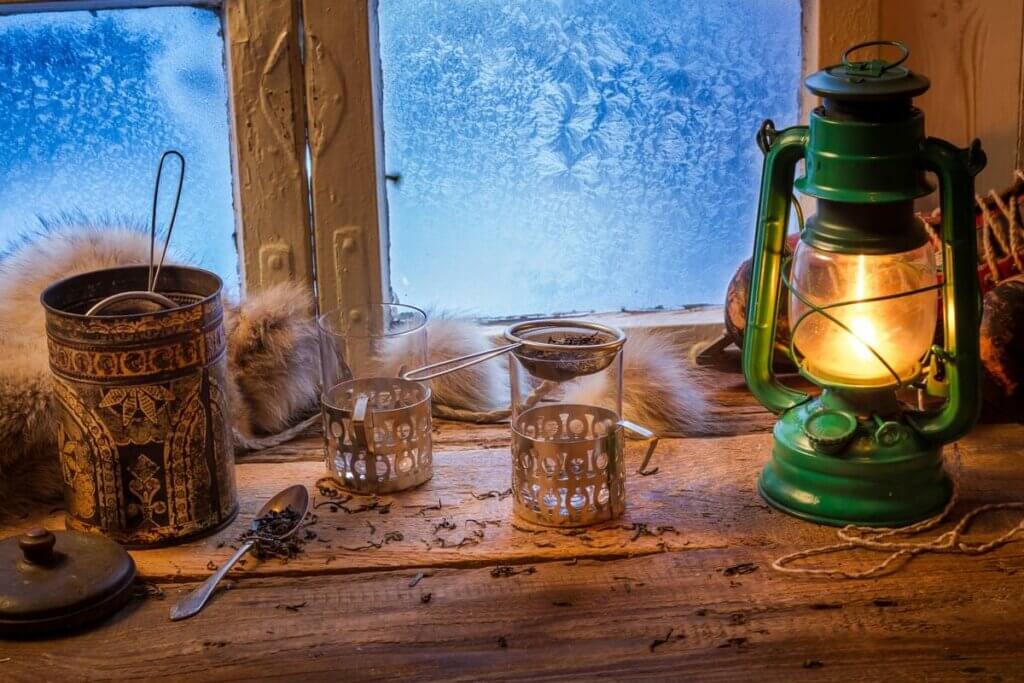
Household Items To Keep On Hand
- Matches & Lighters – If you rely on wood heat, as we do, not having a convenience item like a lighter is so nice instead of needing to rely on a flint! If you rely on electric heat, it’s important that you have a backup solution.
- Oil Lamps, Oil & Wicks – If you don’t have a generator, you will want ways to keep your house lit. Having an oil lamp, extra lamp oil, and extra wicks are a great way to make sure you always have a light source.
- Backup Ink, Labels, Paper – If you work from home you may need items like ink, paper, and internet. You can ready how we use our generator to make sure I’m not without internet for my home business here.
- Backup Chargers – Keeping extra chargers for items like phones, lights, batteries, etc. is a good idea in case you lose the original.
- Ammunition & Cleaning Supplies – Here on our homestead we have the need to protect our livestock, and we also do a good deal of hunting, so keeping ammunition and gun cleaning supplies on hand is key.
- Fuses – If you blow a fuse, will you have a backup to replace it? This goes for your home and vehicles (or anything else that uses a fuse!).
- Hand-Crank Emergency Radio – These are good to have in the case of an emergency situation. Many times you can get a radio/light combination. We like to have an extra for both our house and car.
- Backup pump for a well – If you’re on well water and your pump dies, do you know how long it would take to get a replacement? If you kept a backup on hand, you wouldn’t have to wait nearly as long! Or having a hand-water well pump as a backup is a great option not just for when the pump goes out but also for power outages. (Learn how to purify and store water at home so you have clean water in an emergency.)
- Sanitation – It may sound silly, but have you considered where you will go to the bathroom if you can’t get water to fill your toilets? You either need to make sure you have enough water to keep your toilets flushed or a place outside that won’t contaminate water supplies.
- Information – While the internet is a vast source for learning things, what if you couldn’t access it? Have you printed out the e-books and articles that contain survival information? Do you have hard copy books and resources for cooking, gardening, etc? Be sure to check out my bookstore to grab hard copies of anything necessary!
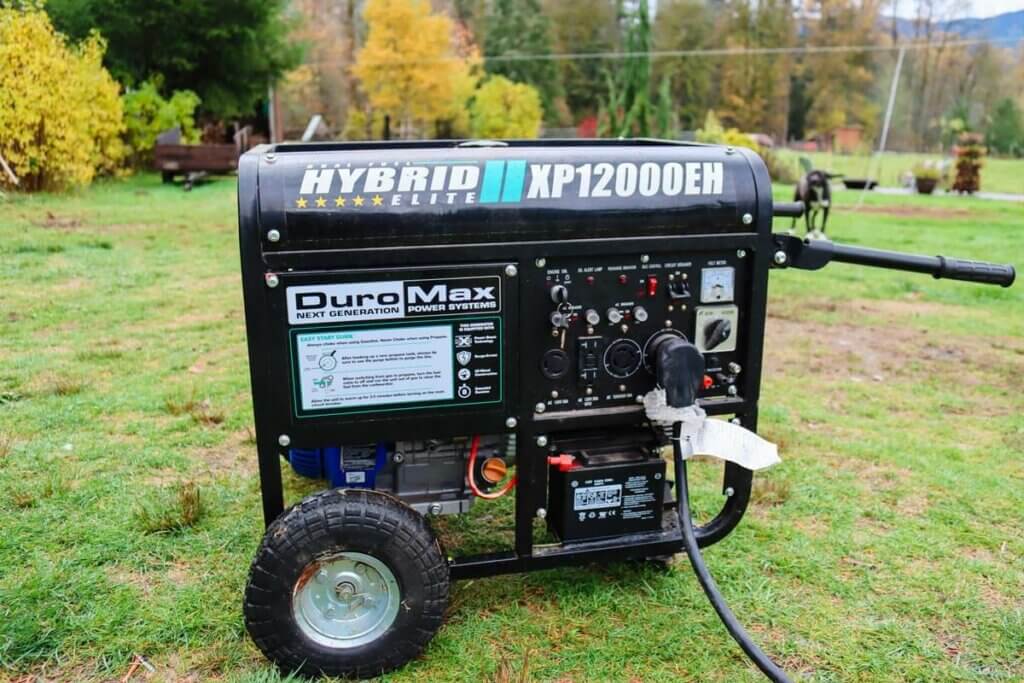
Subscribe to Melissa K. Norris!
Get updates on the latest posts and more from Melissa K. Norris straight to your inbox.
We use your personal data for interest-based advertising, as outlined in our Privacy Notice.
Vehicle & Equipment Parts
If you rely on your car, especially if you have to commute to work every day, having backup parts for things that would keep you from getting to work are key.
- Windshield Wipers – If you’ve ever lived in an area where you get snow and freezing rain, having windshield wipers that work are key! And they can get messed up quick if you forget to lift them up during a freezing rain storm.
- Headlights – Having a headlight go out can really ristrict your vision, especially if you live out where there aren’t a lot of streetlights.
- Fuel – Having extra fuel on hand for cars, tractors, lawnmowers, etc.
- Filters, Belts, Gaskets & Seals – Common maintenance supplies that need to be swapped out from time to time on your vehicles are key to keeping your vehicles in running order and ready to use.

Livestock & Pets
If you have severe weather conditions (or supply-chain issues worsen) you want to be sure your livestock and pets will be well taken care of.
- Feed – Having enough food for your livestock to get through a few months is ideal, if not longer. It’s my motto to always have the current bag of feed we’re on, plus a minimum of one more. So as soon as I open that extra bag of feed, I will replenish our supply (and get further ahead, if possible). Start slow with one extra bag and build up from there as you can. Our ultimate goal is to have a year’s worth of feed, grain and hay for all of our livestock and animals.
- Workboots & Gloves – Always good to have backups for the unexpected rips (or misplacements). For snow and extreme deep mud/water I like Muckboots. For easy slip on for light mud and rainy days (hello Pacific Northwest), my XtraTuf boots have been fabulous.
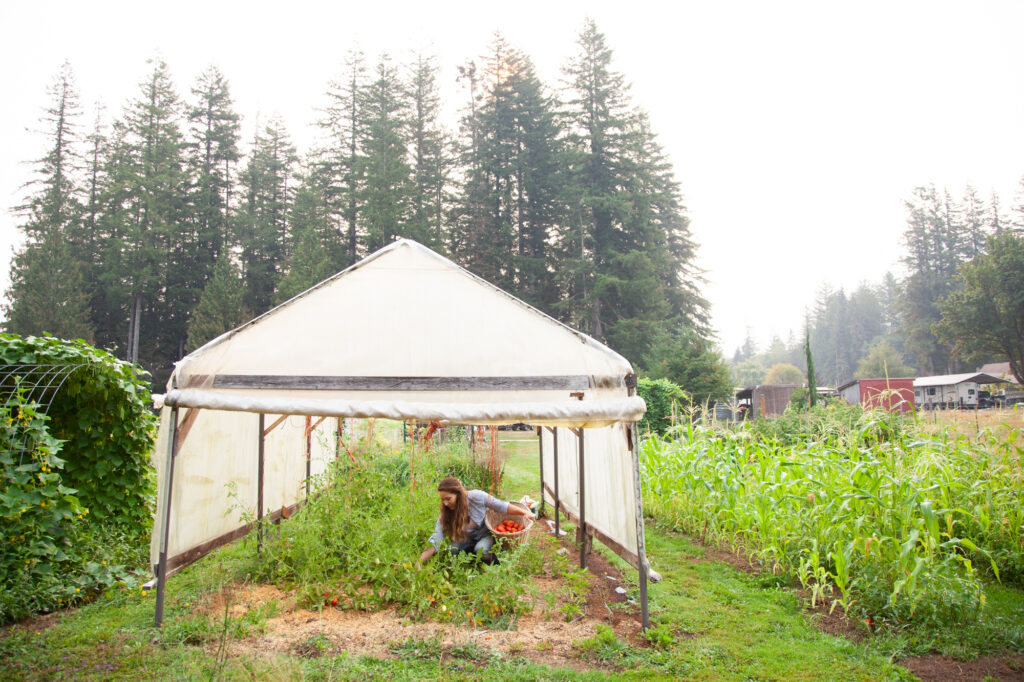
Garden & Yard Supplies
- Seeds – Seed saving is an important skill. Starting in March of 2020 I started stocking my seeds a year in advanced for all seeds that I don’t seed save myself (Where to Buy Heirloom Seeds – Heirloom, Hybrid & GMO Differences). As long as your seeds are stored properly, they will store and be just fine for years (with the exception of tiny seeds that contain oil and onion seeds). After 2-3 years you may have a lower germination rate, but you’ll still be able to grow food.
- Garden Hose Repair Kits – A new hose is expensive, and for us means a long trip to town. Having a simple hose repair kit can save a lot of time and money.
- Gaskets & Faucet Supplies – Every four or five years we have to replace the gasket inside our kitchen sink faucet. It’s just an annoying little drip, but when we have the gasket to quickly and easily replace it, it saves us the annoyance!
And finally, my most important tip would be to know Jesus! This is going to make some of you mad or be like, what, seriously? And yes, seriously. We can be as prepared as we want, but the fact is, we’re all going to die. Most likely, we won’t know when. After going through a deadly mudslide in our neighboring town, I believe Jesus should be our number one preparedness priority because we can’t plan when we die, only where we’ll go.
Grab the Free Checklist
Click the link if you’d like a copy of my full FREE downloadable checklist that you can print out and use for your own house to make sure you’re always stocked and ready.
Resources
Podcast #361
- “How to Prepare for Cyber Warfare in the United States.”
- How to seed save from your garden.
- How to purify and store water at home.

Other Posts You May Enjoy
- How to Use a Generator During a Power Outage
- How to Build a Survival Garden
- 9 Things to Consider for Ongoing Covid Preparations
- 12 Non-Food Essentials to Always Have on Hand
- Pantry Items to Always Have on Hand
- Our Food Production Plan & How to Plan for Livestock
- Impact of Being in the Midst of a Crisis
- How to Prepare Your Homestead for Selling
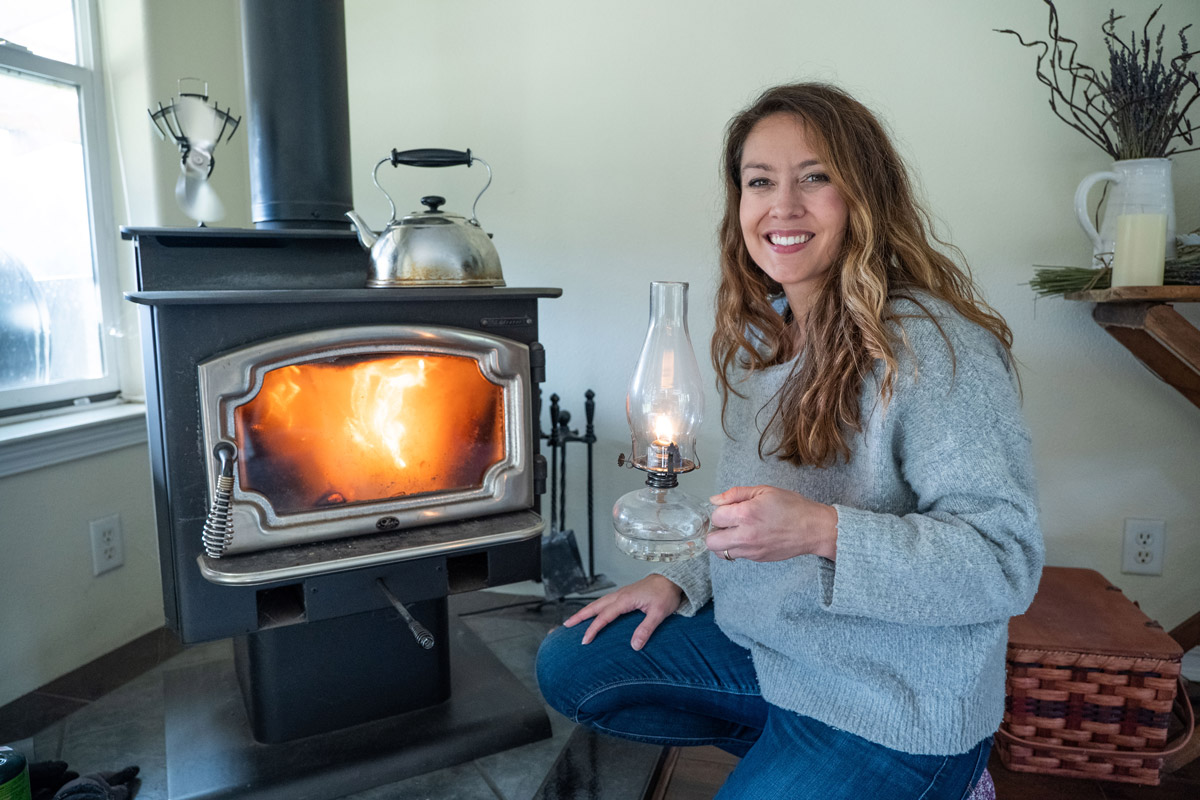

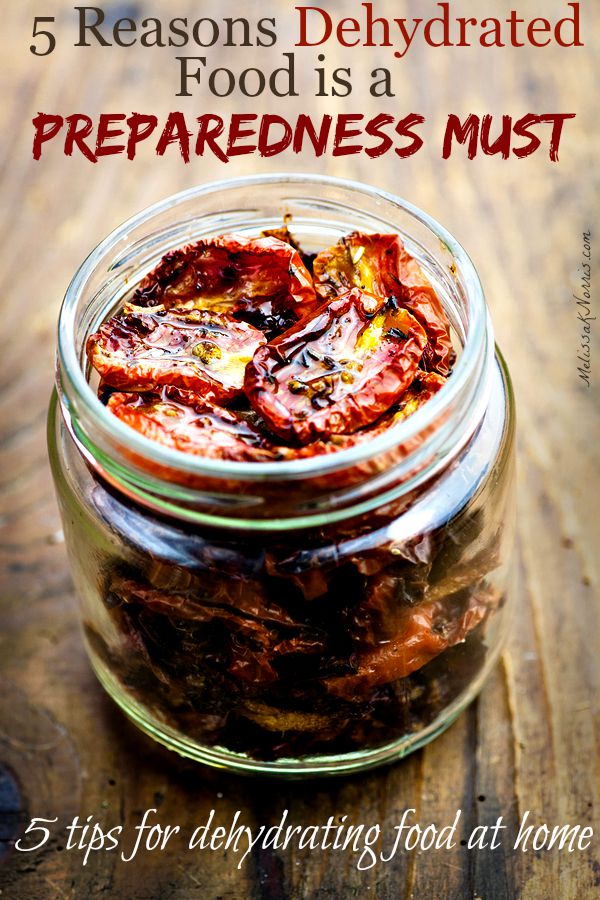
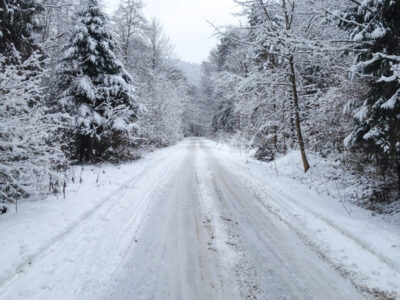
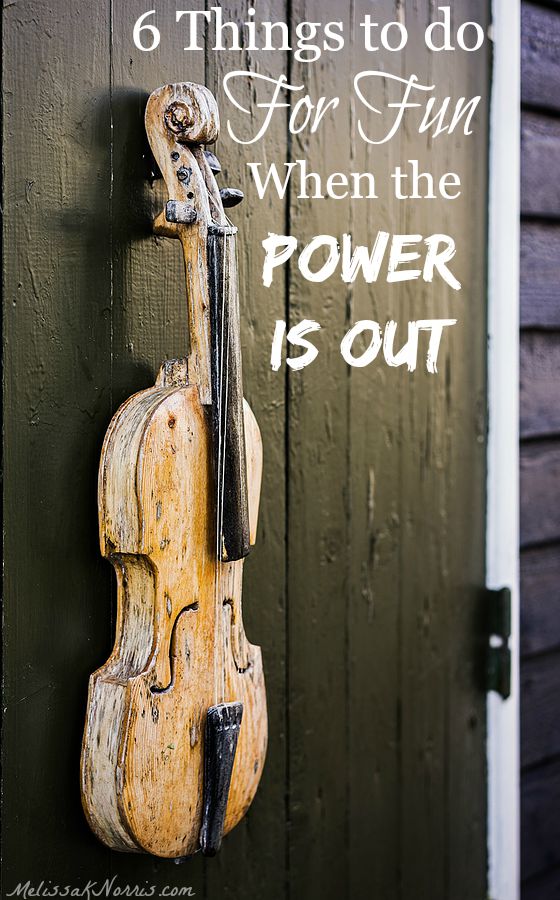

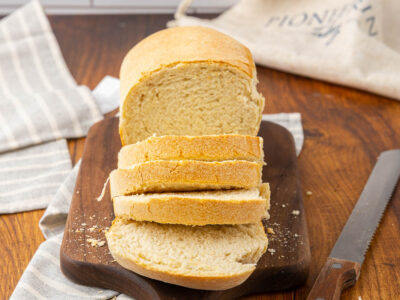




Great post! I’m like you, I’m not a prepper, I’m a preparer. My husband who has always lived in town or suburbia thinks I’m nuts, but I grew up rurally and we had multiple occasions where we were without power for days. Or snowed in and couldn’t get to town. There’s a different mentality once you’ve lived it than when its just theory.
We’re also backpackers so we have quite a few options we’ve used at home when needed because we have things to use in the back country.
Gay boys xxx young teen boy movies twink porn videos
http://chouse-memphis.hotnatalia.com/?marina-abigail
amber lynn free porn fire breathing dragon porn video rde tube porn teen tiny porn movie babe amateur movie porn young
GREAT WEB SITE
Hi
Wondering how do you store a year worth of feed? We have a variety
of animals.
One of the other things that may be good to list is not only a prepared box with extra clothing, water, and food, but a preparedness box for your vehicle. Things like flares, windshield washer fluid, oil, a small shovel, de-icer, antifreeze, a reflective hazard sign, etc. This is something you personalize for you and your vehicle. Heck, I even keep a bag of kitty litter in case I get stuck We live in a rural part of the state and it’s not unusual to get stuck or an ice storm and you lose power for days. Always be prepared!
Wow! That is a great, comprehensive list! Thank you!
I have spent the last 4 hours attempting to connect
Homestead Preparedness Checklist.
Help Please
Hi Kathy,
Please email [email protected] for assistance, my guess is it’s something with your internet or browser settings and we’ve had hundreds of people get it successfully.
As a baby boomer I was raised by the greatest generation who survived the Great Depression, WWII etc. We were raised to be independent and think for ourselves. I enjoy your information and columns. A tip for the radiator is to carry little packets of ground pepper. If the radiator springs a leak [not a hose] the pepper will swell and plug the hole.
I am often called a “prepper” because I like to be prepared as you describe in this post. I greatly dislike that term because I don’t like the aspect of fear or conspiracy theories that come to mind with the definition of prepper. I much prefer referring to my self and my lifestyle as self reliant. I keep stocked up on the items that you talk about in your post so that I am ready to take care of myself and family no matter what life sends my way. I feel very secure in the knowledge that I don’t need to rely on others to provide for me in an emergency.
A couple years ago I saw you talk about the photo case to keep seeds in. I thought it was such a great idea that I went out and bought 6 of them: 2 for veggies, 2 for herbs and 2 for flowers. Love it and am so glad that you mentioned it! Thank you, Melissa!!
I am looking to purchase them as well. Where did you find them? Thanks!
Hi, you present a pretty good list for backup items to keep on hand. However, I’m a mechanic & I noticed one very important item for rolling stock that you missed… Once, a very long time ago, I had an automotive fuse burn out on my vehicle at night. Guess what that fuse protected? The headlights. I suddenly had NO LIGHTS on my vehicle. That brought me to a screeching halt. It was scary. This was in the days before cellphones so I was on my own. I didn’t have any spare fuses with me. I had to pull over & spend the night on the side of the road. Moral of the story? Carry a full spare set of automotive fuses in all your vehicles. A side note: keep a roll of duct tape in your vehicles. Duct tape can make many types of temporary fixes. You can tape a leak on a radiator hose & it will get you home or to town where you can fix the problem. Also, nowadays, always keep your cellphone fully charged in case you have a break down & need to make a call to someone.
Great ideas to add in!
Hi, you present a pretty good list for backup items to keep on hand. However, I’m a mechanic & I noticed one very important item for rolling stock that you missed… Once, a very long time ago, I had an automotive fuse burn out on my vehicle at night. Guess what that fuse protected? The headlights. I suddenly had NO LIGHTS on my vehicle. That brought me to a screeching halt. It was scary. This was in the days before cellphones so I was on my own. I didn’t have any spare fuses with me. I had to pull over & spend the night on the side of the road. Moral of the story? Carry a full spare set of automotive fuses in all your vehicles. Also, nowadays, keep your cellphone charged up in case you have a break down & need to make a call to someone.